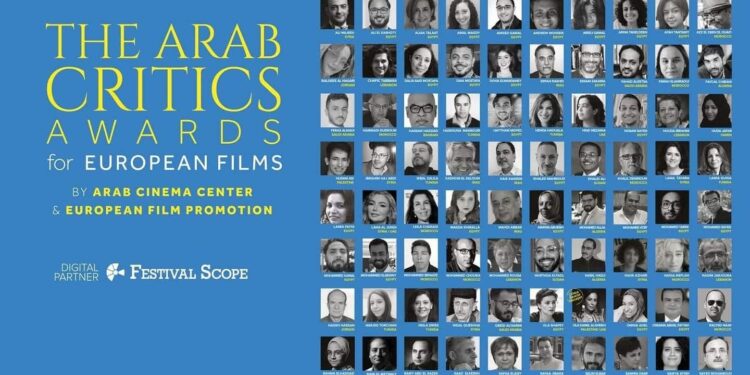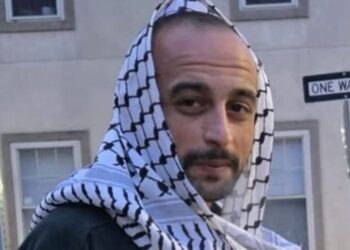The El Gouna Film Festival, scheduled for October 16 to 24, 2025, will once again host the Arab criticism prizes for European films (Arab Critics’ Awards for European Films), a now unavoidable meeting which is already in its seventh edition. Created jointly by the European promotion of the film (European Film Promotion – EFP) and the center of Arabic cinema (Arab Cinema Center – ACC), this initiative highlights the richness and diversity of European cinema through the gaze of 100 Arab criticisms from 16 countries. Their mission: to designate three favorites among the twenty films selected, before announcing the final winner during the festival.
The 2025 selection illustrates the variety of European writings and the originality of artistic approaches. Many of these works have already marked the biggest international festivals or represented their country in the Oscar race for best international film. Among them, we find Young people Jean-Pierre brothers and Luc Dardenne (Belgium), who won the Best Screen Prize in Cannes, Little Trouble Girls d’Urška Djukić (Slovenia) or Sanatorium Irish documentary maker Gar O’Rourke. Other films, already widely distinguished, confirm their place in this competition: DJ Ahmet by Georgi Unkovski (North Macedonia), multi-pressed in Sundance, Cannes and Sarajevo, home Sweet Home by Fretle Petersen (Denmark) and Deaf D’Eva Libertad (Spain), rewarded in the Panorama de la Berlinale, Yunan by Ameer Fakher Eldin (Germany), winner at the Rotterdam Arab film festival, or Celtic Utopia de Dennis Harvey and Lars Lovén (Sweden), awarded at Locarno’s criticism week. The animation is also represented with Tales from the Magic Garden by David Súkup, Jean-Claude Rozec, Patrik Pašš and Leon Vidmar (Slovakia), already crowned at the Giffoni Film Festival.
Click here for the list of all the selected movies
For Sonja Heinen, Director General of the EFP, this selection testifies to the magnitude and diversity of European cinema: “ We are delighted to see this year again new criticisms join the jury. Everyone brings a singular perspective, which enriches dialogue and contributes to strengthening the circulation of films. The twenty works in competition reflect the vitality and plurality of European cinematographies. »»
On the side of the center of Arab cinema, its co -founders Alaa Karkouti and Maher Diab insist on the importance of this collaboration with the EFP: ” It is always a pleasure to renew this partnership and give Arab criticism the opportunity to have European cinema shine in our region. These exchanges also make it possible to open new horizons to filmmakers. »»
In El Gouna, artistic director Marianne Khoury underlines the importance of this meeting in the dynamics of the festival: “ We are proud to welcome the prices of Arab critics for European films. This meeting between Arab criticism and European cinema illustrates our vocation to establish bridges, to promote intercultural dialogue and to assert the essential role of Arab festivals in this interaction. »»
Since its creation in 2019, the prize has rewarded several works that have become emblematic. The first edition had devoted the very beautiful God Exists, Her Name is Petrunya of Macedonian director Teona Strugar Mitevskaa striking work on female emancipation which had already marked the Berlinale and found a large echo in the Arab region thanks to its daring treatment of traditions and patriarchy. The following year, German Christian Petzold was distinguished for Undinea contemporary variation of aquatic legend, whose visual poetry and the interpretation of Paula Beer had been widely hailed. In 2021, the prize had returned to the Slovak filmmaker Peter Kerekes for 107 Mothersa hybrid film, between fiction and documentary, which explored motherhood behind the walls of a Ukrainian prison, arousing a rich debate on the representation of women and margins.
In 2022, it was the Polish veteran Jerzy Skolimowski who had turned upheavals with criticism with Eoa modern rereading of Balthazar at random by Robert Bresson. The film, told from the point of view of a donkey, had conquered the festivals and recalled the strength of experimental looks on the world. The year 2023 had devoted the Finnish Aki Kaurismäki to Dead leaves/FALLEN LEAVESa tender and melancholy chronicle on two lonely beings who meet in Helsinki, confirming the unique and minimalist style of the filmmaker, Already celebrated in Cannes.
Finally, in 2024, the price had distinguished The seeds of the wild figure/The Seed of the Sacred Fig by Mohammad Rasoulof, a magnificent Iranian film of a major political scope, also awarded by several prices in Cannes, including the special jury prizeand which had found a particular resonance in the Arab world by its commitment and its narrative power.
This retrospective of the winners of the six previous editions shows the capacity of the price to identify works of great aesthetic and thematic diversity, but also to offer them extended visibility in the Arab region, where criticism plays an essential role of cultural passer.
This year, the list of 100 participating criticisms includes several Tunisians, confirming the place of national criticism in the Arab landscape. Among them are Lamia Guiga, Ikbal Zalila, Samira Daimi, Tarek Ben Chaabane – Current Managing Director of Carthage 2025 cinematographic days -As well as myself, Neïla Driss, alongside other feathers from the whole region.
Click here for the list of all criticisms per country
The prize, supported by Creative Europe – the Media program of the European Union, aims as much to promote the diversity of works as well as to enhance the voice of Arab criticisms, considered as essential smugglers between films and audiences. More broadly, it aims to stimulate the interest of distributors and professionals in the sector for works which, without this springboard, would sometimes find it difficult to find visibility in the region.
The El Gouna festival, founded in 2017, has established itself in less than a decade as an essential platform for Arab and international cinema. Thanks to its industry, the Cinegouna Platform, it encourages the discovery of new talents, promotes co -production and consolidates artistic exchanges. The integration of Arab Critics’ Awards for European Films in its programming confirms this desire to put criticism at the heart of cultural dialogue and to make the festival a real crossroads of the cinemas of the world.
Neïla Driss





